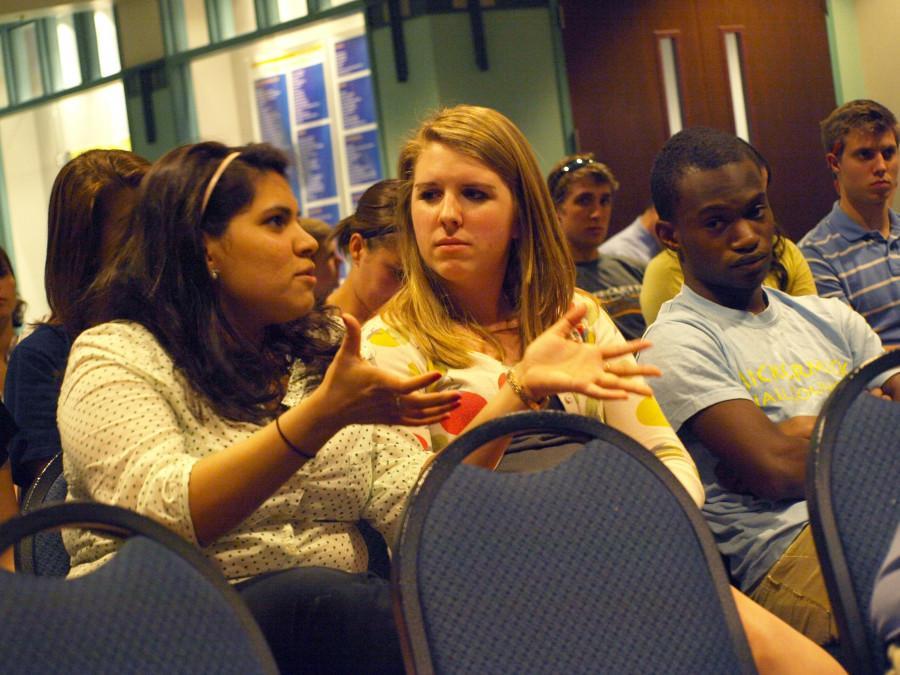About 80 students gathered Tuesday night to listen to and share their opinions with University President the Rev. Scott Pilarz, new Vice President Mary DiStanislao and Provost John Pauly.
The goal was to address four questions relating to university strategic planning. Only three were fully addressed due to time constraints.
What do students think the university does well?
Warming up the crowd, Pauly began the conversation and got students to address issues like the core curriculum, service learning and involvement in the Milwaukee community. These topics were among the subjects which students viewed as positive aspects of their institution.
For Katie Simoncic, a senior in the College of Communication, another positive aspect of Marquette is the amount of alumni involvement she noticed within the university. She said alumni are very responsive and active in the Marquette community and bring a greater feeling of family to its identity.
“I’m excited to become an alumna and come back to the university,” she said.
What does the student body want the future to look like?
One improvement that Carly Zarr, a senior in the College of Education, would like to see is a growth in connection among the colleges in the university to help create more diversity.
Addressing this, Pilarz asked, “Do you think Marquette students identify more with their college or with their class?”
Almost unanimously the crowed answered college, and the hope among students is for that to change.
This led to a question from DiStanislao concerning how students identify themselves with their living situations. A comparison was made to the living communities at other universities like Notre Dame, where students live in the same building all four years, and how that idea might fit with the Marquette community. More hands raised in the audience.
The majority agreed that the idea wouldn’t work well with how Marquette is laid out, saying it would be more restricting and might cause greater separation among students.
With that, Pilarz offered a slight jab at the rival Catholic institution located in South Bend, Ind.
“So you’re confirming my suspicions that Marquette students are a lot more adventurous than Notre Dame students,” he said.
What do you think are some of the challenges within the university?
One consensus among students was that service is a huge influence on how the university is portrayed. Many agreed that the attention of service learning programs should be emphasized more in order to create a greater connection with the urban Milwaukee community.
Pilarz agreed, and he said service was an “echoing theme” among many discussions that have been held.
Another challenge addressed by Guadalupe Guerra, a graduate student in the physician’s assistant program, was the idea that Marquette isn’t very well known outside of the Midwest.
“I want us to be world-renowned for our academics and for our outreach to people,” Guerra said.
Pilarz agreed that Marquette needs to have a greater voice.
“You’re absolutely right,” Pilarz said. “I’ve heard people describe Marquette to me as pathologically humble, that we’re not good at telling our story.”
Issues discussed ranged from diversity and tuition to how students relate to the university. Pilarz said the best discussion revolved around how community played a role in the university.
“The sense of community at Marquette is something with which people really seem to resonate,” he said. “And as a result of listening to the students tonight, we would never want to do anything to jeopardize that sense of community.”


